The United Nations Security Council is weighing a proposal that would see U.N. peacekeepers in the Central African Republic offer support to newly-trained troops as they deploy across the country.
A French-drafted resolution would authorize the U.N.’s Minusca mission to “provide limited logistical support” for troops that have been trained by the European Union, according to the text seen by AFP on Wednesday, November 7.
The proposal is raising eyebrows, in particular from the United States, which is seeking to streamline peacekeeping operations to reduce costs and make them more effective, diplomats said.
The council will vote next week backing “rapid extension of state authority over the entire territory” by supporting the deployment of the vetted and trained troops in areas outside the capital Bangui.
President Faustin-Archange Touadera in April called for more peacekeepers to be deployed, and for Minusca to transition from peacekeeping to peace enforcement.
Touadera’s weak government controls around a fifth of Central African Republic and relies heavily on Minusca for support. The rest of the country is controlled by at least 14 different militia groups who often fight each other for control of revenue from extortion, roadblocks or mineral resources.
The draft resolution also extends the Minusca mission until November 2019 but maintains a ceiling of 11,650 military personnel. Last year, the council increased the authorized number of personnel by 900. Minusca is the U.N.’s fourth largest mission, after the Democratic Republic of Congo, South Sudan and Mali.

Training and equipping Central African forces
The European Union has trained more than 3,000 personnel to serve in the Central African Armed Forces (FACA). In July, the bloc extended EUTM-RCA until 2020, pledging €25 million ($29 million) to help reform the country’s defense sector. The scope of the mission was also modified to give strategic advice to the president’s cabinet, interior ministry and police, as well as the military.
Russian advisors also work with FACA and provide security and advice to Touadera. In August, Russia signed a military cooperation agreement with CAR offering the possibility for Central African officers and NCOs to be trained in Russian military schools.
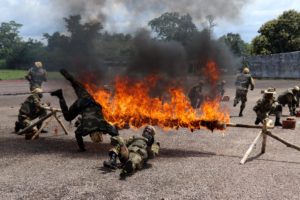
More than 1,000 FACA personnel have completed Russian training programs in CAR, which they undertake after completing the EUTM-RCA program. They are trained by Russian instructors in the use of weapons provided by Russia.
The U.N. Security Council imposed its current arms embargo on CAR in 2013, but weapons shipments for the security forces can be authorized after special pre-approval by a sanctions committee. The embargo was last year lifted by the Security Council to allow delivery of Russian weapons, which the U.N. has since verified with the defense ministry and Russia.
Russia’s Ambassador to CAR Sergey Lebanov said on September 17 that a second shipment of Russian arms and ammunition “is in preparation,” and will be delivered once it has Security Council approval.
However, while on a visit to CAR on November 2, Foreign Minister Jean-Yves Le Drian announced that France would “soon deliver” 1,400 assault rifles for FACA within a strict and transparent U.N. framework, adding that “it would be absurd to train soldiers and not to give them the means to perform their duties.”
It is unclear if the intended French shipment is instead of or in addition to the proposed Russian delivery.
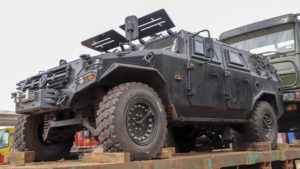
In June, France, the U.S. and the United Kingdom put a hold on a CAR request for U.N. Security Council approval of weapons shipments from China.
On September 26, Touadera reiterated a call for “the total lifting of the arms embargo that still weighs on our national army” in an address to the annual U.N. General Assembly.
Parfait Onanga-Anyanga, the outgoing U.N. special envoy to CAR and head of Minusca, said the following day that the U.S. had also proposed sending “new quantities of weapons” to the country.
Onanga-Anyanga said that the need for weapons was “undeniable” as the Central African Republic government builds its armed forces, but urged transparency in the flow of arms.
France, Belgium, China and the U.S. have recently supplied equipment for CAR’s military, but that equipment is understood not to include weaponry.
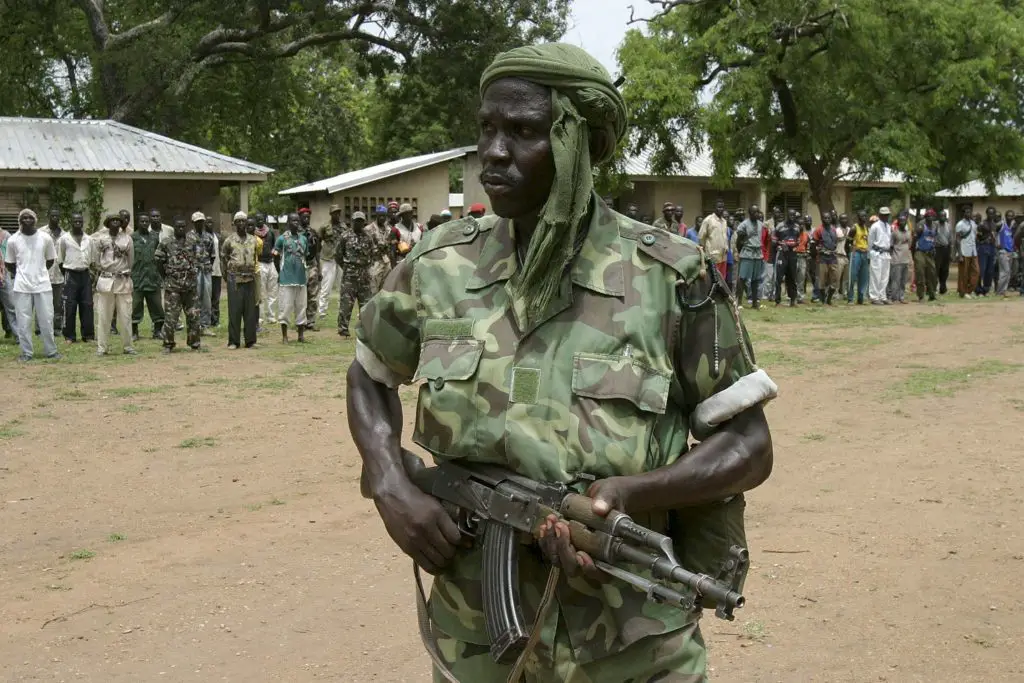
Competing peace efforts
The draft resolution also takes aim at recent Russian efforts to broker peace deals in CAR by specifying that an African-led initiative is “the only framework” for a solution.
Working with Sudan, Russia on August 28 convened talks in Khartoum where four ex-Seleka groups and a rival anti-Balaka group signed a declaration of understanding which said they had decided to “create a common framework for dialogue and action for a real and lasting peace.”
However, on October 19, two of the ex-Seleka groups said they had withdrawn from the agreement, and a third withdrew days later.
The Russia-brokered talks drew criticism from former colonial power France which said there was “no alternative” an on-going African Union initiative, but Russia’s foreign ministry has said Moscow “plans to continue its mediation efforts” in coordination with the A.U. and U.N.
Supported by the U.N. and other international partners, an A.U. expert panel has been working to set up negotiations between the militias and the government since July 2017. France, Russia and the U.S. are observers in the A.U. iniitiative.
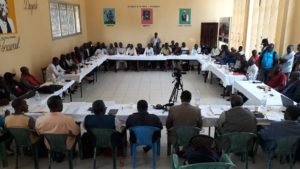
Just days after the Khartoum declaration was signed, representatives from 14 militias held talks that could lead to negotiations with the government, a spokesperson for the A.U. expert panel said.
The “positive” meeting ended with a single list of 104 demands, signed by the representatives of the 14 armed groups that would be be put to the government as “the basis for negotiations between the two sides,” Francis Che said.
Touadera welcomed the A.U. meetings, saying that “the African initiative is the only frame of reference” for dialogue.
To step up diplomatic efforts, the U.N. and A.U. plan to appoint a joint special envoy, while Onanga-Anyanga will become part of the A.U. panel leading the peace effort.
A divided country
Despite reserves of diamonds, gold, uranium, copper and iron, Central African Republic is one of the world’s poorest countries.
The majority-Christian country descended into violence following the 2013 ousting of President Francois Bozize in 2013 by the Seleka, a coalition of mainly Muslim rebel groups.
Seleka was officially disbanded within months, but many fighters refused to disarm, becoming known as ex-Seleka. Many others joined the mainly Christian anti-Balaka militia to fight the Seleka, leading to a spiral of violence between groups along both religious and ethnic lines.
By the end of 2014, the country was de facto partitioned – anti-Balaka in the southwest and ex-Seleka in the northeast.
Violence by both sides led to thousands of deaths. Nearly 700,000 people are displaced, 570,000 have fled the country and 2.5 million are in need of humanitarian aid, according to the U.N.
France pledges weapons and financial aid for Central African Republic
With reporting from AFP

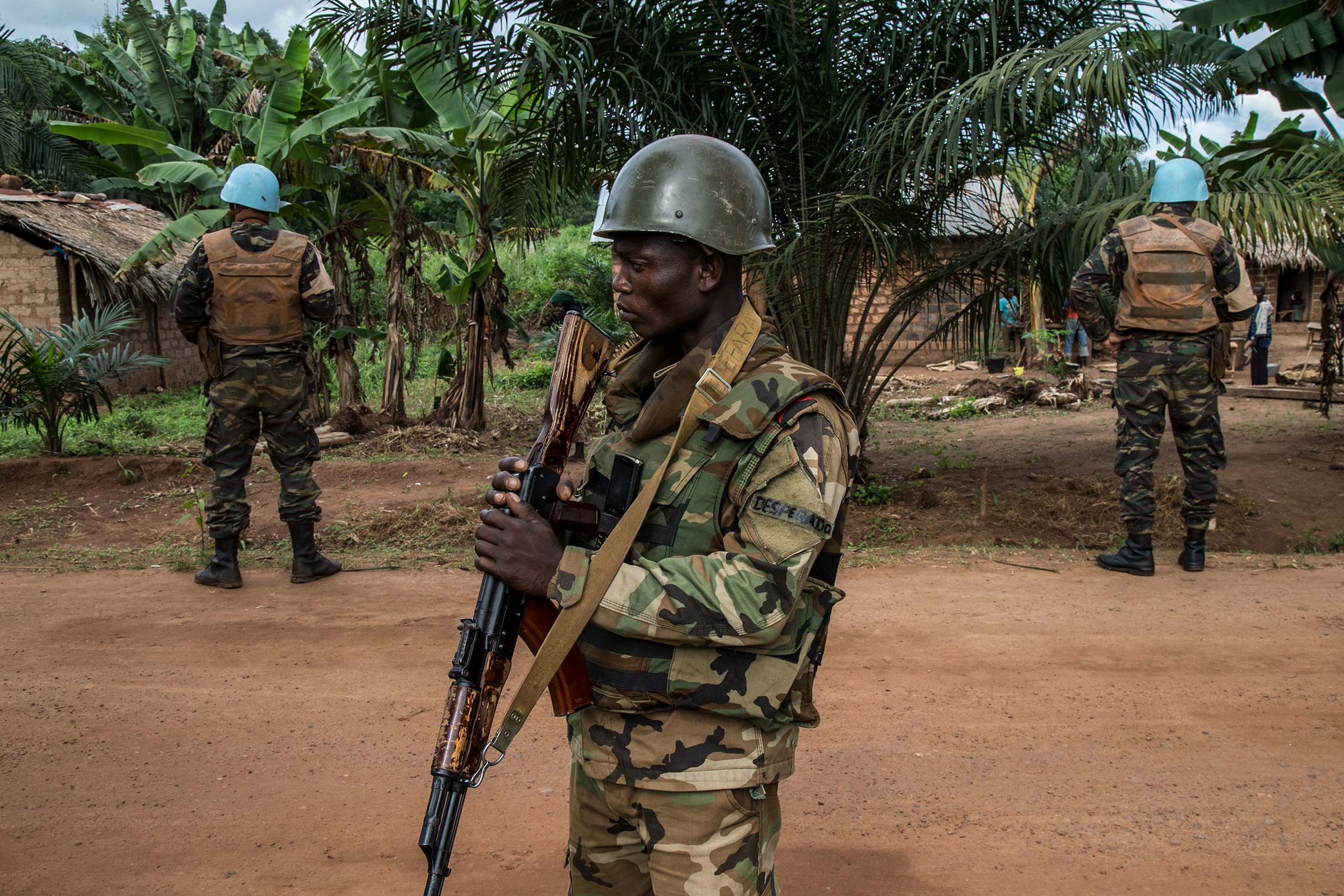
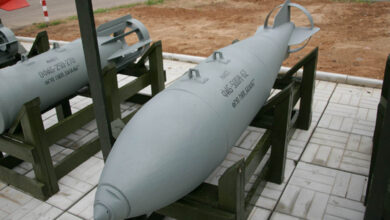
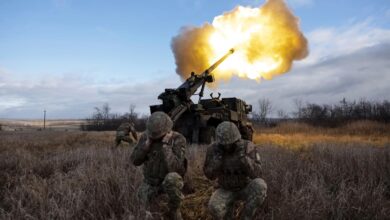
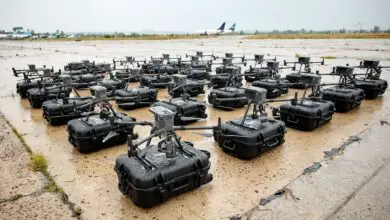
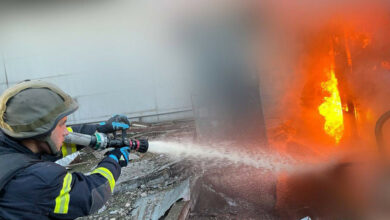
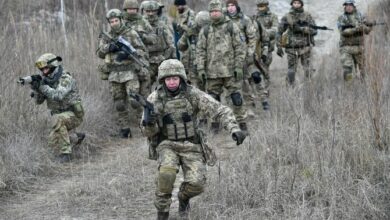

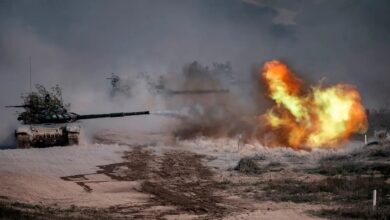
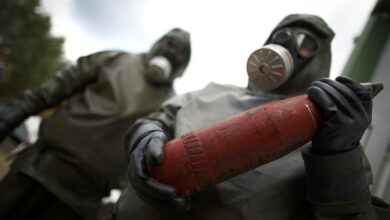
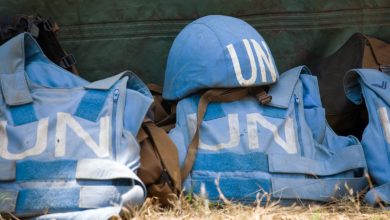
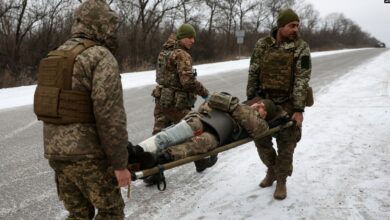
4 Comments